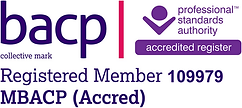Published in response to: “All six of my babies died and I went years without answers” — WalesOnline, by Jonathon Hill, 20 October 2025 (updated 21 October 2025). Read on to learn why support matters after pregnancy loss.
When a Mother’s Story Breaks the Silence
The recent Wales Online storyof Jessica Sims from Bridgend, who lost all six of her babies before finally receiving answers, has deeply touched many of us working in perinatal and trauma care.
Jessica’s experience — fourteen years of loss, isolation, and unanswered questions — reveals not only the personal devastation of baby loss but also the systemic failures that leave parents unsupported.
What moved me most was Jessica’s reflection that professionals spoke about her babies “as though they didn’t exist.” That sentence captures one of the deepest wounds I hear from parents in therapy: the pain of having their babies, and their grief, dismissed by the very systems meant to help them, and also those who they consider to be in their own support network
How Language Shapes Grief
As a perinatal counsellor and trauma therapist, I often hear parents say:
- “It was early, so I shouldn’t be this upset.”
- “At least it wasn’t further along.”
- “People keep telling me I can try again.”
These words aren’t born from the parent’s own true thoughts, they’re echoes of how society ranks loss. Somehow, we’ve absorbed the idea that miscarriage is “less than” stillbirth, that grief has a gestation period, or that early loss doesn’t deserve mourning.
But the truth is – to the parent, it’s nearly always a baby that they feel they have lost. Which is why support matters after pregnancy loss.
Love begins long before birth, often before the first scan or heartbeat. Right from the moment couples start trying to conceive, they are invested in the love for the baby they hope for.
When that pregnancy ends, no matter the stage, the grief is real, and it is lifelong.
When Support Comes Too Late
Jessica shared that she wasn’t eligible for medical investigations until she’d suffered three miscarriages. That threshold, waiting for repeated heartbreak before help, remains common practice.
This policy doesn’t just delay diagnosis; it communicates that early losses don’t count enough to warrant care. For many, that lack of validation becomes a second trauma, compounding the pain of the first.
In therapy, I see how this message embeds itself: guilt, shame, and the haunting sense that they’re “overreacting.” But grief isn’t linear and it doesn’t expire. It lives in the body, resurfaces with every trigger, and deserves support from the very first loss.
Stillbirth, Miscarriage, Neonatal Loss — Different Experiences, Equal Love
We must move away from comparing pain. Each form of baby loss, whether a miscarriage at six weeks, a stillbirth, or the death of a newborn, carries its own heartbreak.
Every parent loses more than a pregnancy; they lose a future, a role, and a part of themselves. Grief cannot be measured by weeks or weight. It’s measured by love.
The Power of Language in Healing
The language used by healthcare professionals, family, and friends can either comfort or wound. Clinical phrases like “non-viable pregnancy” or “products of conception” may be technically correct, but to a bereaved parent they sound like erasure.
What helps is simple human compassion:
- “I’m so sorry.”
- “Your baby mattered.”
- “This isn’t your fault.”
These words acknowledge what happened without trying to fix it. They make space for grief to be spoken instead of silenced.
What Needs to Change
Jessica and other bereaved parents in Wales are now petitioning the government to set national targets to reduce stillbirth and neonatal deaths by 2035, aligning with calls from Sands, the UK’s leading baby loss charity.
Beyond policy and testing, though, we need a culture shift. One that recognises every loss as significant, ensures early emotional and medical support, and provides ongoing mental health care for parents after loss. Also a culture that encourages those who have experienced pregnancy and baby loss to feel able to speak about it without “upsetting” other people. It is not the bereaved who are responsible for other people feeling uncomfortable. Talking about our losses is what support acceptance and healing.
Because baby loss is not just a medical event, it’s a trauma that ripples through every part of life. And until every parent receives the compassionate care they deserve, stories like Jessica’s will keep repeating.
For Anyone Living With Loss
Support matters after pregnancy loss. If you’ve experienced baby loss, whether through miscarriage, stillbirth, or neonatal death, ectopic pregnancy, or any other means please know this:
Your grief is valid. I offer supportin various ways for those in the perinatal period, who’ve suffered miscarriage, baby loss and birth trauma.
You are allowed to miss your baby, to talk about them, to love them, and to still find moments of joy without guilt.
Written by Julie Lee
Perinatal Counsellor & Trauma Therapist
Supporting parents through baby loss, pregnancy after loss, and perinatal trauma
www.julieleetherapy.org






